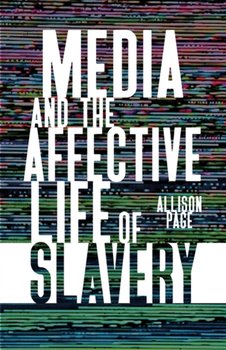In Media and the Affective Life of Slavery, Allison Page interrogates how media culture from the 1960s to the present has mobilized the legacy of slavery for affective governance, or “the production and management of affect and emotion to align with governing rationalities” (6). Throughout the book, Page’s analysis succeeds in providing a rich mapping of the converging interests of state actors, media producers, educational organizations, and other stakeholders as they narrate their own desire to manage emotions in the wake of the civil rights movement and to maintain white supremacist order.
Articles by Michael L. Thomas
Michael L. Thomas is a University Lecturer in Philosophy at the University of Amsterdam. Formerly. He was an Alexander von Humboldt Research Fellow in the John F. Kennedy Institute for North American Studies at the Freie Universität Berlin and Assistant Professor of Philosophy and coordinator of Africana Studies at Susquehanna University. His research explores the aesthetic dimension of social life, investigating the use of aesthetic experience for theorizing empirical social relationships and the construction of societies as a collective, aesthetic endeavor. He has published work in Philosophy and Literature, Social Theory, Critical Philosophy of Race, and Amerikastudien.
